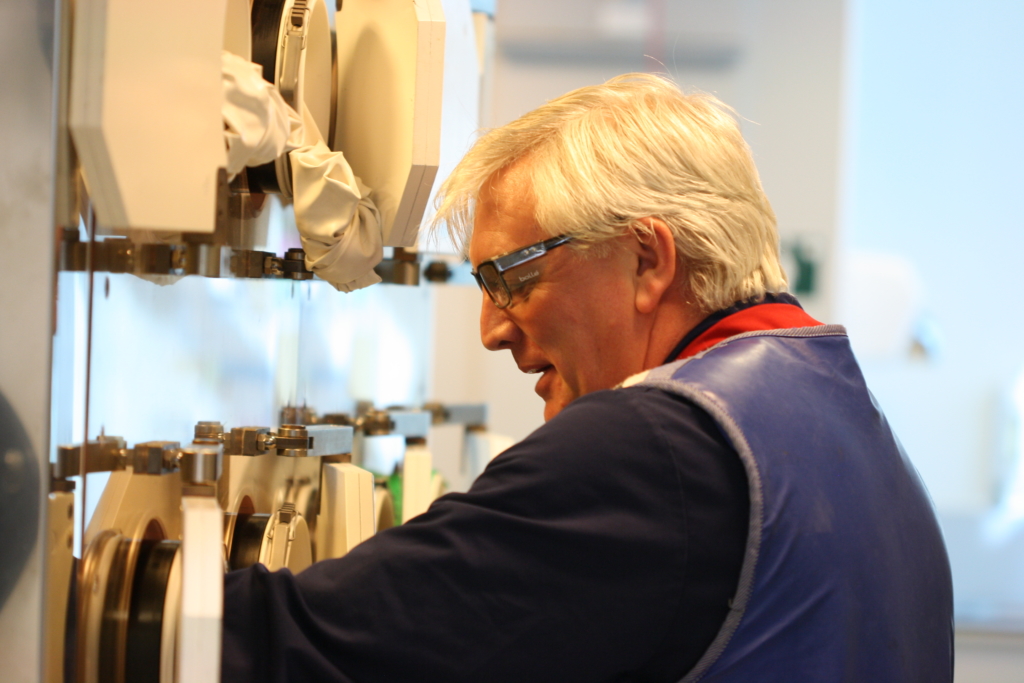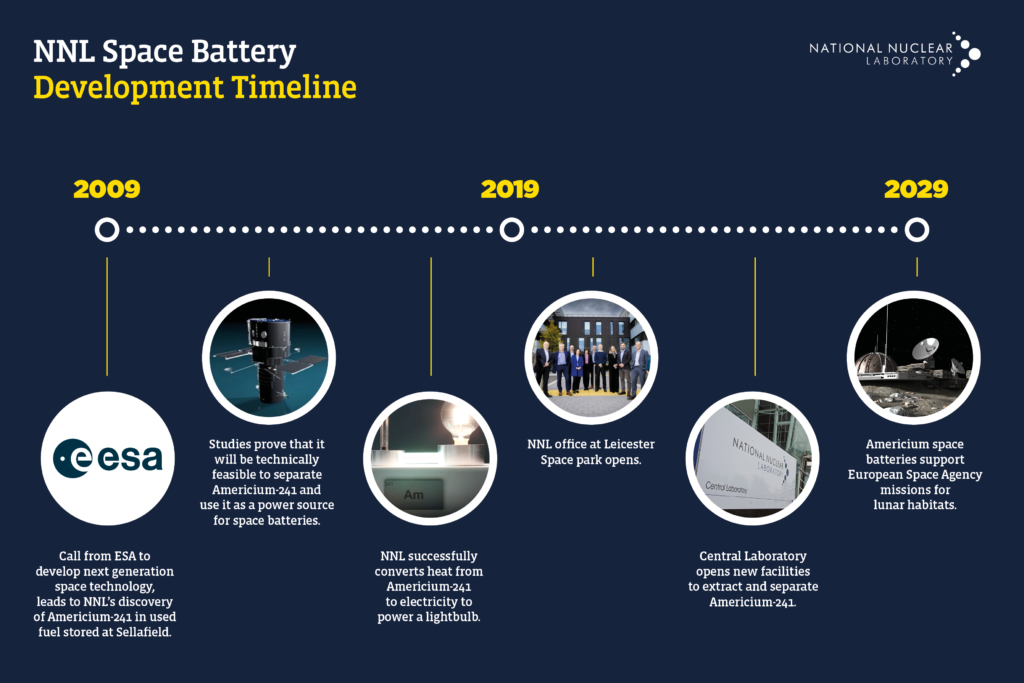Scientists at UKNNL have successfully extracted and separated Americium-241 in the laboratory for over a decade. The handling and processing techniques they use are the core skills that our scientists develop in our laboratories. The same techniques have provided a breakthrough in nuclear medicine, producing radioisotopes for targeted alpha therapy for some of the most difficult to treat cancers. Having successfully produced Americium-241 at gram scale, we are expanding to production at industrial scale at our world-leading Central Laboratory in Cumbria. We are the only laboratory in the UK currently able to produce Americium-241. Once extracted and separated, our scientists will turn the Amercium-241 into pellets ready to load and test in a space battery.

Breakthrough in production of Americium-241
In 2019, following a decade of research, UKNNL scientists used the heat from a small amount of the radioisotope Americium-241 that they had extracted from stored fuel to generate electric current for a small lightbulb. This was a major breakthrough for the space industry, as existing batteries are powered by ever-dwindling supplies of Plutonium-238. Americium-241 has a half-life of over 400 years, making it ideal for deep space exploration. Americium does not occur in nature, but its discovery in the fuel safely stored in the UK by the scientists at UKNNL makes it a very useful by-product. The UK has plentiful supplies of Americium-241 within the stored fuel and this discovery is keeping the UK at the frontier of space technology. This means that what was previously considered as surplus material is now a critical component to the European Space Agency’s missions from the late 2020s and beyond.

